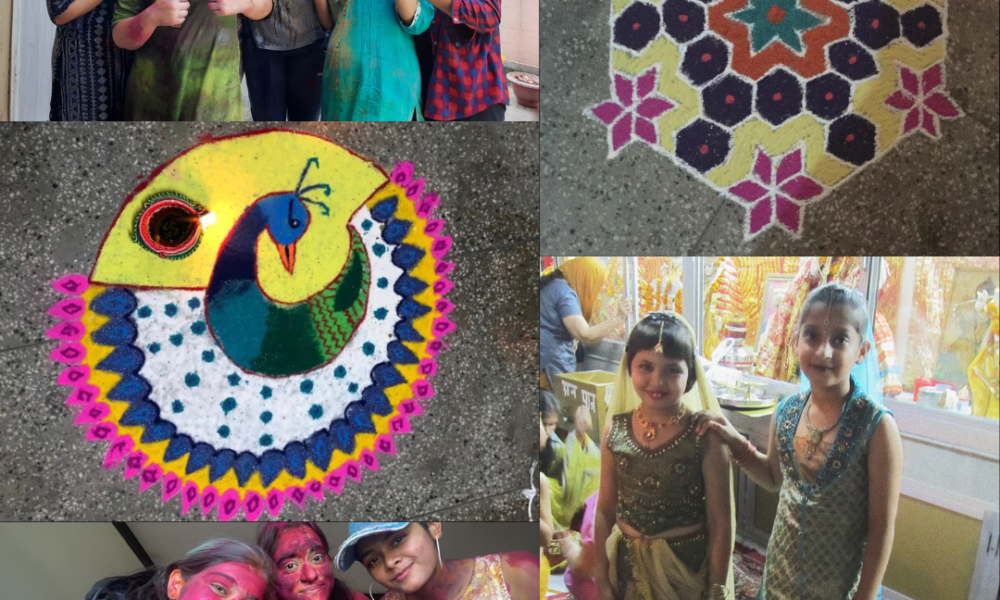Canada needs more festivals, and let me tell you why. As someone who grew up in a multicultural country––living in the immigrant hub of New Delhi––I have celebrated almost every festival known to man since I was barely a year old. When I came to Canada at 18, my first culture shock was the scarcity of festivals. It left me wondering “What do people look forward to?” When I was in school in India, I remember hating the months of July and August because it meant no festivals and therefore school for a full two months. I still cannot fathom being a kid going to school every day and not being given a day off every two weeks because of a festival.
With March comes Holi, a festival where you throw water balloons and coloured powder on people to celebrate spring. This means you start planning your water balloon attacks on the enemies (kids in the neighbouring apartment complex) weeks in advance. On the day of, you wake up at 7 a.m. and unleash wrath on whoever you see. This was the one day we could take revenge on the adults who banned us from playing cricket because we kept breaking their windows. Plus, if you came home without looking like you were dragged through a paint shop, then you did not play Holi. The colour would stain, and we would go to school looking like Smurfs.
July and August were joyless months of study, except for one major festival, Janmashtami (Krishna’s Birthday). Even though it was not a big festival, it was for my friends and me. We used to put on a dance performance for our entire neighbourhood. Now of course, you needed at least a month of practice for this, so that is how we coped with the sad, hot, holiday-less months of July and August—by simply choreographing a 30-minute dance and making elaborate costumes.
Then came October and November, the kings of the festival season. From October to November, nobody does any work, we all quit and dream of Diwali, a festival where you burst crackers, exchange gifts and decorate your houses to celebrate the return of a deity. There is a common misconception that Diwali is one day; it is actually a month of smaller festivals leading up to a big blast. Literally, we burst so many crackers that people in Delhi cannot breathe for days (not that they can on a regular basis either, but it’s considerably worse). These are months filled with joy, happiness, and gifts. Life is much easier to handle when everybody is secretly dissociating at work and dreaming about going home. Going home meant getting to see what gifts had come and whether the neighbourhood kids had started bursting crackers. However, my favourite part was neither the gifts nor the firecrackers but the rangolis. Rangoli is an art form that involves creating patterns on the floor using materials such as dry rice flour, coloured sand, and flower petals. I got to make it with my Tamil neighbours, who are experts and have very graciously taught me this beautiful art over the years (I threw a tantrum when I was a child whenever they didn’t let me participate). I used to wake up early in the morning and get to work, decorating the entire corridor. Growing up I wasn’t great at art, so this was my place to really be creative.
Finally, December hits: Christmas. My friends and I decorated our trees, hosted Christmas parties, and watched Hallmark movies. This month is also the only one I’m properly able to recreate in Canada.
Now that I have subjected the readers to a recounting of my entire childhood, I remember the real reason why I chose this topic to write on. I miss the community; I miss the nosey people on the streets; I miss annoying children trying to throw water balloons at me, but they miss because their aim is shit and mine is not. Canada needs more festivals because people need something to look forward to. Canada needs more festivals because in the cold winter months when seasonal depression is in full bloom, Christmas is not enough (although Montréal does make me feel like a princess during those weeks). Also, Canada needs more festivals because I genuinely cannot go to class every single day (I go to one lecture and call it a day).








